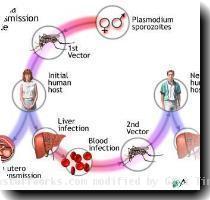Medecins Sans Frontieres pleads for more AIDS funding, saying other crises have hurt donations
By APThursday, November 5, 2009
Medical aid group raises alarm about AIDS funding
JOHANNESBURG — The global recession and pressure to divert funds to other health crises are hurting the fight against AIDS, a medical group warned Thursday, with one health worker saying he feared a return to the days when the AIDS virus was a death sentence in Africa.
Medecins Sans Frontieres campaigners said at a news conference in South Africa that clinics funded by international donors in Uganda were being told not to take on new patients. MSF, also known as Doctors Without Borders, said they feared a major global distributor of AIDS money was considering cutting back worldwide.
HIV, the virus that causes AIDS, is a major concern in sub-Saharan Africa. South Africa has the world’s largest number of HIV cases, with some 5.7 million people infected with the virus, according to the United Nations’ AIDS agency.
“We think we are at a very dangerous turning point,” said Dr. Tido von Schoen-Angerer, director of the aid group’s campaign to provide essential medicines. “The donors are getting cold feet about commitment to longterm, chronic disease.”
He said he has been told that donors wanted to spend on “cheap and easy” illnesses rather than AIDS, which can mean a lifelong commitment to providing expensive drugs.
A spokesman for the Global Fund to Fight AIDS, Tuberculosis and Malaria said despite the “challenging” financial times, “there is no interruption in any funding whatsoever.”
The fund provides a quarter of all international financing for AIDS, two-thirds for tuberculosis and three-quarters for malaria, and MSF raised concerns Thursday about its ability to take on new projects.
Fund spokesman Andrew Hurst said its directors would meet next week to discuss a new three-year round of funding — the current round ends next year — and meetings with donors would follow.
MSF also said a top U.S. AIDS initiative was faltering. The President’s Emergency Plan for AIDS Relief, or PEPFAR as the project started by former President George W. Bush is known, plans to keep funding at current levels for the next two years, even though needs are growing, MSF said.
PEPFAR officials did not immediately respond to requests for comment.
Shrinking funds means spending will have to be smarter, said Helen Epstein, who has written about managing AIDS programs in Africa and advised the U.N.
Philip Stevens, a public health specialist at the International Policy Network in London, said the emphasis might be on preventing rather than treating AIDS in the poorest countries. And even when funding for treatment was needed, middle income countries should not rely on “the largesse of” wealthy industrialized nations, he said.
MSF officials said other models, such as a levy on international money transfers to fund health care, should be considered. And while they disagree that it should be a choice between treatment and prevention, they said there were areas where savings could be made, such as on the cost of drugs.
Olesi Ellemani Pasulani, an MSF worker at a hospital in rural Malawi, made a passionate plea.
He said that when the group started working in the Thyolo area in 1997, there was only enough funding for AIDS education and counseling, and many died of AIDS. The clinic began providing AIDS treatment drugs with Global Fund money in 2003, and by 2007 was getting them to everyone who needed them in Thyolo — some 18,000 patients, he said.
“We have seen patients who were bedridden going back to their lives,” Pasulani said. “Let us be there for them, now and forever.”
Tags: Africa, Diagnosis And Treatment, Diseases And Conditions, Infectious Diseases, Johannesburg, Medication, South Africa, Southern Africa
|
May 10, 2010: 9:29 am
AIDS should not be taken for a ride otherwise we may find ourselves dealing with a million-headed monster that will deplete the population of the working age-groups in the world. What, then, will be the fate of those who remain? |




Skincare Needs